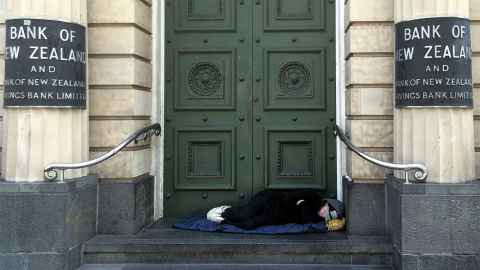Covid-19 no ‘great equaliser’
11 August 2020
Opinion: Those most impacted by Covid-19 are those who can least afford to weather it, write Professor Merryn Gott and Dr Jackie Robinson.

Emerging evidence from overseas regarding the clear link between poverty and Covid-19 is as predictable as it is heartbreaking. People living in the most deprived areas of England and Wales are twice as likely to die from Covid-19 when compared with those living in the least deprived areas.
Densely urbanised areas are most at risk, with Newham in London reporting an age-standardised death rate approximately four times the national average. It is clear that political claims that the pandemic is the ‘great equalizer’ are unfounded. Rather, the structural determinants of health - and death - are being starkly exposed and exacerbated.
Intersecting inequities must also be considered given the truly shocking burden of infection - and death - being faced by minoritised communities. Overall, it is clear that those who are being most impacted by this virus are those who can least afford to weather it.
While here in Aotearoa we have been largely protected from the impact of Covid-19, New Zealanders experience similar health inequities to those in the UK. People living in areas of deprivation are likely to be struggling to access timely and appropriate healthcare. Indeed, there is significant and robust evidence to show that - even outside a pandemic - people living in deprivation have worse access to health services than those who live in more affluent areas.
This has been termed the ‘inverse care law’: the ironic fact that those who most need health services are the least likely to have rapid access to them. Our research group has been concerned for some time about the impact this has on people who are approaching the end of their lives and their family and whānau.
While we do not know the situation nationally, there is evidence from overseas to show that people who live in areas of high deprivation are less likely to access specialist palliative care services such as hospice. They may be less likely to get GP support because, as the inverse care law shows, GPs in deprived areas are much busier. They are also less likely to die at home which is contrary to how most of us understand a ‘good death’.
Evidence of these inequalities have provided the impetus to our new Health Research Council funded research project on the experiences of palliative and end of life care in areas of deprivation in Aotearoa. Currently, policy makers and clinicians have very little insight into what it is like to be dying while also living in an area of deprivation.
Health service access is only one aspect of total end of life experience. Most care received at the end of our lives is provided by family and whānau. Many people aspire to die at home. However, achieving a home death is much more feasible for those with financial means than for those who are struggling to make ends meet. Our research has shown that people turn off their heating, skip meals and incur significant debt in order to be able to support their sick family member.
We know that housing stock in many areas of Aotearoa, and particularly in those affected by deprivation, is inadequate. There can be issues with damp and mould from poorly constructed and poorly insulated properties. There is also insecurity to contend with. Those with less financial means are much more likely to live in rental accommodation or temporary social housing. Private landlords can ask tenants to move at a month's notice, without having to provide a reason, and regardless of whether the tenant or their family member is seriously ill or dying. A damp, cold house with little food in the fridge is unlikely to be a pleasant place to live, let alone die.
In times of crisis, systemic inequity worsens. Health inequalities are now back on the political agenda in a big way. Covid-19 has also brought death and dying into the spotlight. Statistics showing that areas of high deprivation suffer higher mortality rates from Covid-19 are a stark reminder of the social determinants of health.
Achieving a good death is not just about optimising health services or accessing specialist palliative care - although this is important. Tackling the social determinants of end of life experience - addressing food insecurity and fuel poverty, improving housing stock and financial support for family and whānau carers - are more important now than ever. After all, dying has always been a social, rather than a purely medical experience.
Professor Merryn Gott and Dr Jackie Robinson are members of the Te Ārai Palliative and End of Life Research Group, based in the School of Nursing. Dr Naomi Richards is Director of the End of Life Studies Group at the University of Glasgow and is leading a similar study in Scotland called Dying in the Margins.
This article reflects the opinion of the authors and not necessarily the views of the University of Auckland.
Used with permission from Newsroom Covid-19 no ‘great equaliser’ 11 August 2020.
Media queries
Alison Sims | Research Communications Editor
DDI 09 923 4953
Mob 021 249 0089
Email alison.sims@auckland.ac.nz